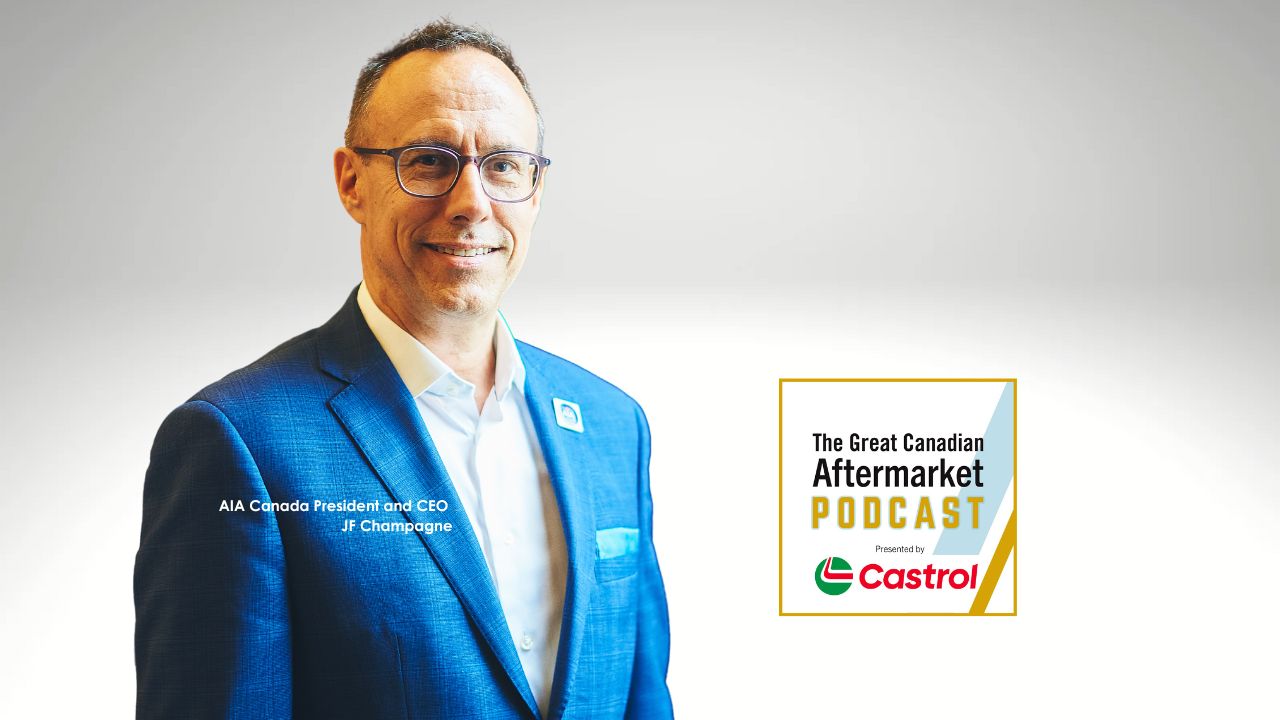For much of Canada’s automotive aftermarket, the Right to Repair issue has been one of both importance and some frustration.
For a long time, years of effort passed without any real progress toward a legislative solution. Sometimes the aftermarket seemed tantalizingly close to measures that would enshrine the right of consumers to choose–and for the aftermarket to be able to be part of that choice on a level playing field with the original equipment service sector–only to have those hopes dashed when an election was called or a Parliamentary session ended.
With the recent passage of Bills C-244 and C-294 by Canada’s Parliament, the Right to Repair issue has seen its first concrete progress at the national level, even if those bills do not directly address Right to Repair by name.
“It’s been three years to channel this bill through the House of Common into the Senate,” explains Jean-Francois Champagne, President and CEO of AIA Canada, which has spearheaded much of the effort. Speaking at the recent AAPEX in Last Vegas to The Great Canadian Aftermarket Podcast host Andrew Ross, Champagne explained that it’s an important step.
“What that does, it actually changed the Copyright Act It makes a carve out for the right to circumvent digital locks for the purpose of maintenance, repair and diagnostic of any products made. Obviously for us, applicable to automotive. So up until that change, in fact, it was illegal in Canada to circumvent technological protection measure–TPM, that’s the buzzword in use. So all these digital locks that we’re increasingly seeing in vehicles could not be circumvented because it essentially was protected by copyright. Now, with this, essentially it is possible to do this, and that’s the first step in our long pursuit of a, a fully robust right to repair. It addresses a small piece, but it’s a very important small step on our journey.”
Champagne says that previously, scan tools that circumvented these digital lockouts would have left service providers and others open to lawsuits charging that they were infringing on intellectual property. With the passage of the copyright bills, aftermarket repairers are now protected from such lawsuits, he says.
Champagne says he can appreciate the feelings of those who feel that it has taken so much time to get to this point, but adds that he sees promise in the fact that the passage of these bills was supported by all federal parties.
“These bills navigated through the entire process with unanimous support. So this is not a partisan issue. And to talk about a world in which we live so much divided. Well, think about one issue that rallies everybody across the spectrum. It’s very rare.”
He says that opposition from automakers and OE dealers continues to be robust, which is helping to inform the next steps as he sees it. In full knowledge of the significant lobbying efforts of those groups, he says AIA Canada is also pushing to have automotive included in onging Right to Repair consultations at the federal level. Those consultations have been originally positioned to cover other product areas, such as washing machines, home electronics, etc.
“We’re not going to get legislation tabled in the current government. So, it’s really setting the table for the next government to be able to look at this and hopefully pursuing legislation. Remember that we’ve also had another great win late last year in Quebec. So, are we going to pursue legislation in other provinces today? Our position is we want a federal (rule), we don’t want a patchwork approach. If the need might be, there are other provinces now looking at what Quebec has done and are interested to explore similar bills and legislation. So. it’s going to be a bit of that exploration at the provincial level, and continue to work with the federal government, and really trying to get inclusion on the current Right to Repair consultations with the federal government.”
Champagne emphasizes that the timelines are important moving forward, especially with a federal election coming no later than October 2025, and possibly earlier.
“It is highly possible that the next government will be a majority Conservative government. So now we have four years to work with that government. We have to get something through during that time period. The time is now. What we are hearing now is that some makes and models of a vehicle year 2022 and up are now basically being turned over and sent to the dealerships for any kind of repairs and maintenance. So it’s starting to chip away at the aftermarket capacity to service vehicles, And those vehicles are not coming back. So the time is now. Our counterparts in the US (have a) similar timeline, so they had the REPAIR act in Congress and sadly were not able to get it through.”
Champagne says that the global efforts are important, working to “float all boats,” especially building on successes in Australia, but also taking full advantage of the broad support that the issue has in Canada’s political landscape to push forward.
“So, if I make a prediction, we’ve got to get this done in the next government cycle, which is gonna be the next four years.”
Here the whole conversation


0 Comments